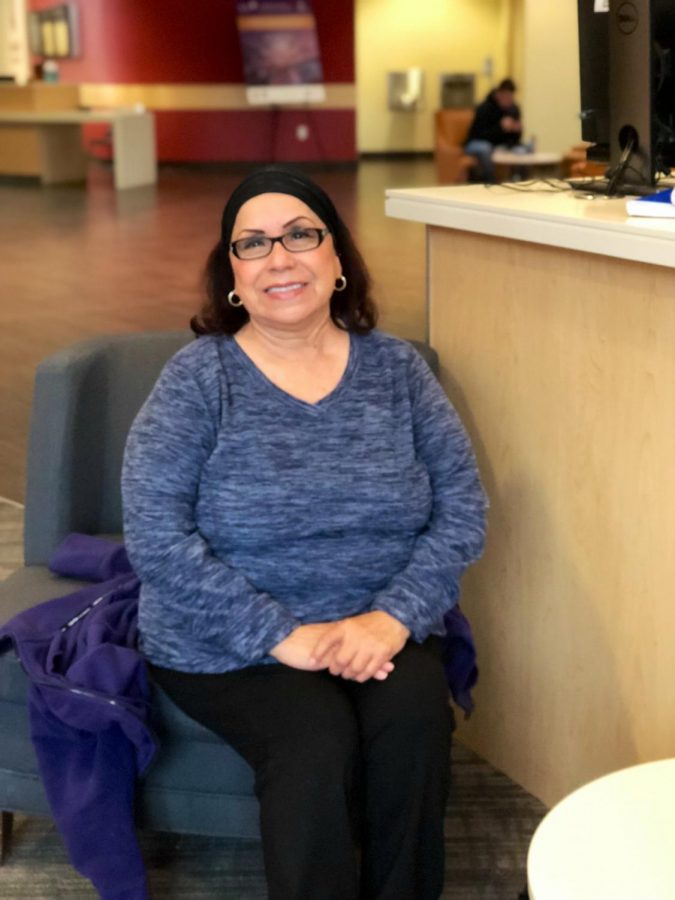Hamline alumna taking the lead
Gloria Quiroga ‘93, a doula for the Minnesota Doula Project, helped draw international attention to Minnesota.
Gloria Quiroga is a woman who entered Hamline much differently than her peers. At 42 and a transfer student, already having raised her own children and having a past most students there would not have experienced.
“I was an intern… and I met a friend, she told me about Hamline and I worked very hard to get in. I came here,” Quiroga said. “I had four children at the time and I was majoring in legal studies.”
After undergraduate, Quiroga always wanted to help people.
“I did one year of graduate work, but my kids were teenagers… I was needed at home,” Quiroga recalled. “I started working for the Saint Paul Public Schools as an educational assistant. I was also working for the red cross and as a interruptor for human trafficking victims.”
Quiroga now works with the Minnesota Doula Project and has worked as a Doula for three different groups, The American Indian Group, Everyday Miracles and The Minnesota Prison Doula Project (MnPDP).
“It makes a difference… these women need help, I can be that help,” Quiroga said. “I really believe in this project, they need us. Their parents aren’t there, and they don’t have the training needed. These women have no one in there, and that’s scary.”
Legal studies Professor Colleen Bell had Quiroga in class while she was attending Hamline, and got to know her well.
“It’s really amazing,” Bell said. “She graduated in a legal studies major. Ending up in a project, which is really unique to Minnesota, is a great inspiration.”
The MnPDP provides pregnancy and parenting support for incarcerated pregnant people and mothers. They provide doulas for expectant mothers to support and guide them through the experience of birth. According to the MnPDP website their goal is to nurture healthy relationships and increase parenting confidence and skills.
“Many students may not know what a Doula is or how important they are, especially to the imprisoned women,” Bell said. “When a woman in prison was pregnant it was the rumor that if you got a c-section you’d be allowed to stay one more day with your baby… of course c-sections are more difficult and cost more for the state… This project is not only morally sound, but economically beneficial.”
The MnPDP was contacted by Minnesota legislators to help craft a bill that “address(es) the needs of incarcerated women related to pregnancy and childbirth”- Chapter 234– S.F.No. 2423. It is the first of it’s kind in America and even BBC flew to do a nine minute special on the MnPDP and the bill.
Quiroga became a doula through information from SPPS (Saint Paul Public School), which offered training for the American Indian Group.
“I saw it and it was different. I like to do different things,” Quiroga said. “When I had my children I didn’t know much about birth, my parents didn’t talk about it… at that time no one was in there with you. I wanted someone to hold my hand and tell me what to do. I wanted to be there for women so they didn’t feel alone.”
The bill gives incarcerated women the right to a doula, as well as ensuring that their pregnancy and birth are treated with dignity. Doulas working in the prison system are able to help with this and provide a great deal of experience to the women they work with.
“The women in these jails and prisons, they deserve to be treated as humans.” Quiroga said, “They’re bringing life into this world, they love them… I love them, they’re my daughters. They deserve to be held and told what to do when they need it.”
In jails, a woman would not be allowed to touch her child, as opposed to in prisons where visits without a dividing glass are allowed. The doula bill is also changing this and allowing women to meet their children and spend time with them. One-third of the world’s incarcerated women are in the USA and those women are being provided with a chance to bond with their children physically due to the doula project and women like Quiroga.






